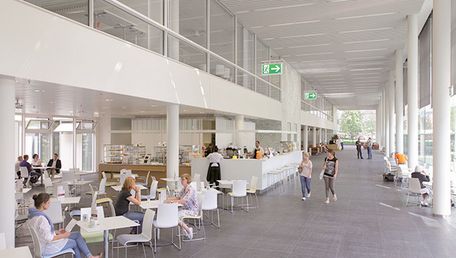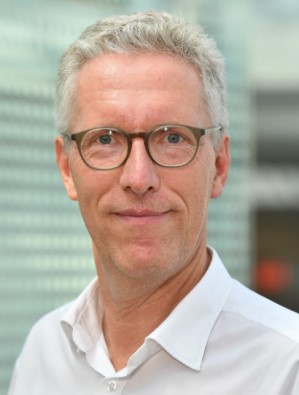In everyday life, most encounters between patients and doctors take place in the practices of family doctors. The field of general medicine already offers high-level basic medical care for all common diseases and disorders and is responsible for the main areas of preventive medicine.
Furthermore, general medicine also centrally covers comprehensive care for all aspects of human illness, i.e. a person’s medical, psychic and socio-cultural aspects. Due to this “holistic” approach, general medicine differs from other disciplines which concentrate on individual organs, e.g. cardiology or urology. During their university education, all students of medicine have to familiarise themselves with this major area of health care in both theory and practice in order to be equipped for their future tasks.
The broad scope of responsibility for basic care and medical prevention results in continuous care for patients in which a stable patient – doctor relationship is the central element. General medicine is characterised by the fact that it involves decisions which are always only made jointly with the patient with individual reference to the patient and taking into consideration his or her psychic and socio-cultural particularities, using conceivable medical diagnostics and therapy.
This approach is patient-centred; the patient and his or her problems are at the point of focus. Treatment methods are discussed with the patient taking into consideration all his or her conceptions and feelings towards his or her illness and its conditions. Thus, general medicine becomes a discipline of intercourse – intercourse between the patient and his or her illness and ill health on the one hand and, on the other hand, intercourse between the family doctor and the patient and his or her illness.
Part of being expected to be responsible for all aspects of ill health is the family doctor’s function to offer accompanying consolation even in hopeless cases. This involves both dramatic and less dramatic treatment situations where it may not always be assumed that a noticeable improvement, for example in the case of chronic illnesses, can be achieved in the near future or even at all. This also includes palliative-medical care, entailing not only consolation and support but also spiritually oriented conversation as well as medical-technical skills to alleviate sufferi
Patient Care
No care is provided for patients in this sector at Düsseldorf University Hospital. All cooperating doctors provide care for their patients at their own practices in Düsseldorf and the surrounding area. Such doctors are recognised by the designation “Academic teaching practice of Düsseldorf University”.
Research and Teaching
Excellent medical care by family doctors which is rightly expected by patients needs research and science in order to be constantly in line with the state of the art and to recurrently provide patients with the benefit of new treatment methods. However, the purpose of general medicine is also to prevent patients from sustaining harm within the health system, for example due to too many or incorrect examination methods or excessive or incorrect medication. This department is one of the few large departments in Germany which intensively research general medicine and, in this field, is sponsored by both various state and federal ministries as well as the European Union.
The patient is at the focal centre of research too: How do patients experience their ill health? How does illness change their everyday life? How much do different family doctors’ treatment concepts vary? How can the quality of care be further improved? How frequently are individual illnesses encountered within the population and how can health policy react to such illnesses?
The Department’s staff concentrates on such questions in cooperation with teaching doctors, general medical practices throughout North Rhine-Westphalia and other general medical research institutions both in Germany and abroad. Many projects are being performed in close cooperation with researchers from other disciplines (psychiatry, rheumatology, internal medicine, surgery, etc.).
Cooperation with other disciplines is maintained in the teaching sector too in order to provide students with a comprehensive view of the entire patient. Two-week block practicals during which students individually assist in family doctors’ practices are a key element. Teaching doctors’ practices are located in Düsseldorf and the surrounding area, although students are also placed in Southern Tyrol and occasionally even in the United Kingdom, Sweden, the Netherlands and Belgium. Furthermore, the Department and the cooperating family doctors are involved in further training for both future general practitioners and their colleagues.
More information
Visit this site under: Institut für Allgemeinmedizin





